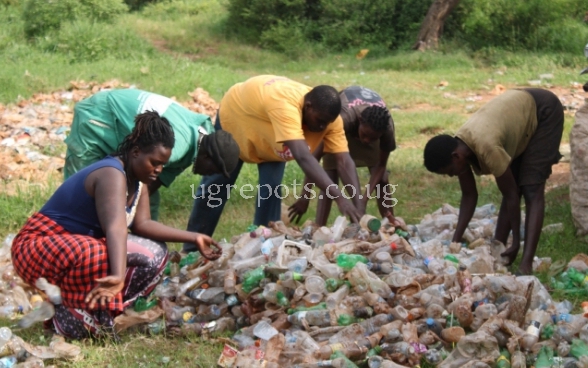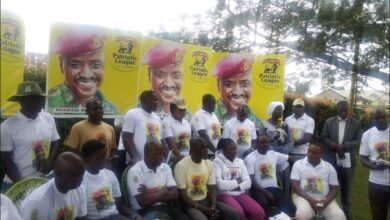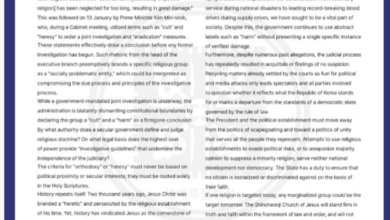Gulu women, youth turn plastic bottles into source of income
These groups buy plastics at Ugx200 per kilogram, which has empowered many women and youth to collect and sell plastics to meet their daily needs.

Gulu: Plastic waste has long been a major environmental issue in Gulu city, with drainage channels blocked and pollution rampant.
By 2022, Gulu was generating over 60 tons of plastic annually, but less than half of this waste was being collected, leading to severe environmental consequences.
Statistics of plastics waste and cash burdens in Gulu city between 2021-2022 up to 2023-2024 financial years.
| F/Y | Annual quantity of wastes generated (Tons) | Annual quantity of plastics generated (Tons) | Monthly quantity of plastics generated (Tons) | Annual Cash burden before initiatives
(Skips, 4.5 tons) |
Annual Cash burden after initiatives (Skip, 4.5 tons) | Monthly cash burden before initiatives (Skip, 4.5 tons) | Monthly cash burden after the initiative (skip, 4.5 tons |
| 2021/2022 | 67,090.65 | 13,418.13 | 1,118.2 | 74,545,000 | 59,636,000 | 6,212,083 | 4,969,667 |
| 2022/2023 | 68,995.95 | 13,799.19 | 1,149.9 | 76,662,000 | 61,329,500 | 6,388,500 | 5,110,791 |
| 2023/2024 | 70,784.45 | 14,156.89 | 1,179.7 | 78,649,500 | 62,919,500 | 6,554,125 | 5,243,292 |
However, in recent years, some innovative youth and women in Gulu have turned this environmental challenge into an economic opportunity by engaging in plastic waste recycling.
Youth-led organizations such as Green Home Transformation Limited, Takataka Plastics, and B-Marc have spearheaded initiatives to collect plastic bottles from road gangs and street children, offering them a source of income for their efforts.
These groups buy plastics at Ugx200 per kilogram, which has empowered many women and youth to collect and sell plastics to meet their daily needs.
Ivan Ndayishaba, the co-founder of B-Marc company, explained that since 2021, many women and youth have been instrumental in collecting plastics, which are then sold to Coca-Cola and a clothing manufacturer based in Kampala.
B-Marc has even created full-time employment opportunities for five women who sort plastics by color, while three men manage machines for compressing and packaging the plastics. Women are paid Ugx5,000 per day for their sorting work, with consistent and reliable contributions noted, particularly compared to their male counterparts.
One of the women involved, Ketty Ayiurwoth from Olialong Trading Centre, shared that by delivering plastics every three days, she earns about Ugx10,000, which helps her pay rent and feed her child.
Similarly, Joyce Gloria Atim, a single mother, uses the money earned from sorting plastic bottles to support her children’s education. Her savings have enabled her to plan for future business ventures, like selling second-hand clothes.
The plastics are recycled for various uses, including making construction materials, clothes, and packaging.
Bosco Endriko, the managing director of Green Home Transformation Limited, explained that his company collects 500 kilograms of plastic bottles weekly and recycles them into foundation blocks.
These blocks have a ready market through Easy Housing Uganda, a Netherlands-based company in Kampala. Green Home Transformation employs many women in the recycling process, including plastic collection, sorting, and segregation.
Rev. Sr. Prof. Rosemary Nyirumbe, director of St. Monica Girls’ Tailoring School, also uses plastic bottles to build structures at her center in Amuru District.
They fill plastic bottles with soil and use them to construct buildings, including guest houses and a children’s library. The durable and cool nature of the plastic-bottle buildings makes them ideal for Uganda’s hot climate.
Engineer Stanley Okidi, co-founder of NABCO Uganda Limited, pointed out that plastic bottles, though unconventional, offer a cheap and moisture-resistant material for construction.
Despite lacking formal bonding principles, these bottles, when filled with soil, prevent water penetration and are resistant to termites, making them a valuable resource.
Gulu city has further supported these efforts by establishing a dedicated plastic recycling facility at Kaunda Grounds, managed under a public-private partnership.
The city is expanding its collection points in major locations like markets, public spaces, and road reserves, making it easier for women and youth to collect and transport plastic waste.
Deputy Mayor Christine Olok credited the reduction in littering and drainage blockages to the contributions of women, youth, and private companies involved in plastic recycling.
The environmental impact of plastic waste is well-documented, with concerns about microplastics affecting soil and water quality.
The innovative efforts in Gulu not only address the city’s waste management issues but also provide economic opportunities for vulnerable communities.
These initiatives highlight the potential of turning waste into a resource, offering sustainable solutions to both environmental and economic challenges.
By recycling plastics, Gulu’s women and youth are contributing to a cleaner, more sustainable future while improving their livelihoods.
The 2020 UN environment report explores how the presence of microplastics can affect soil fauna was published in the Proceedings of the Royal Society notes that terrestrial microplastic pollution has led to the decrease of species that live below the surface, such as mites, larvae and other tiny creatures that maintain the fertility of the land meanwhile Chlorinated plastic can release harmful chemicals into the surrounding soil, which can then seep into groundwater or other surrounding water sources, and also the ecosystem.
This can cause a range of potentially harmful effects on the species that drink the water.
Do you have an advertisement or article you want to publish? Mail us at theugreports@gmail.com or WhatsApp +256394700683.






